In Boston, a group of religious leaders is advocating for white churches to offer financial reparations to the Black community.
This movement, backed by the Boston People’s Reparations Commission, aims to also encourage the City of Boston to allocate $15 billion towards reparations for its role in the slave trade. This demand was presented during an event organized at Resurrection Lutheran Church by the commission.
Reverend Kevin Peterson’s Appeal
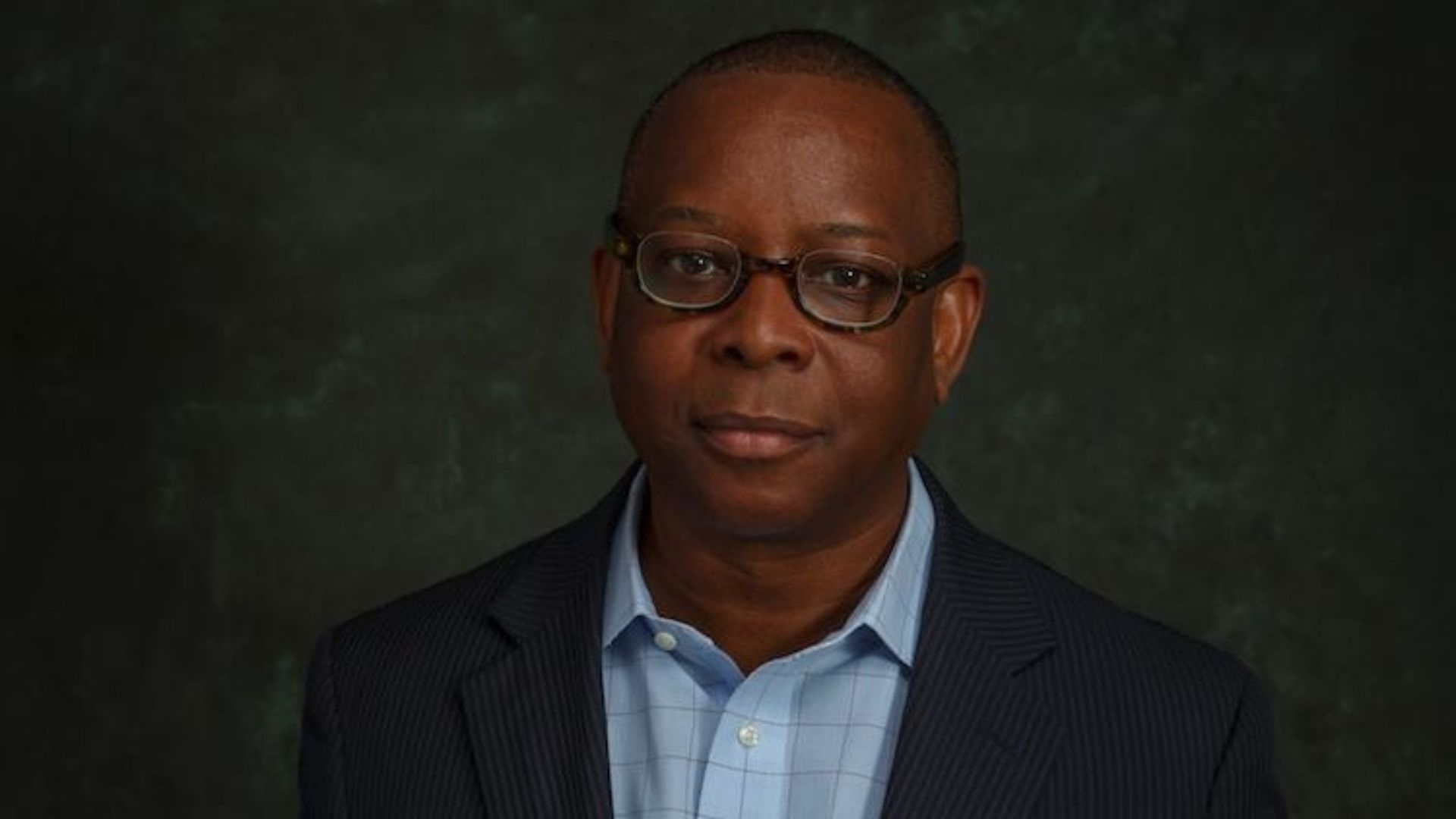
During a gathering, Reverend Kevin Peterson made a plea to white churches, urging them to actively participate in the reparations movement.
“We call sincerely and with a heart filled with faith and Christian love for our white churches to join us and not be silent around this issue of racism and slavery and commit to reparations,” he said.
A Detailed Proposal for Boston’s Reparations
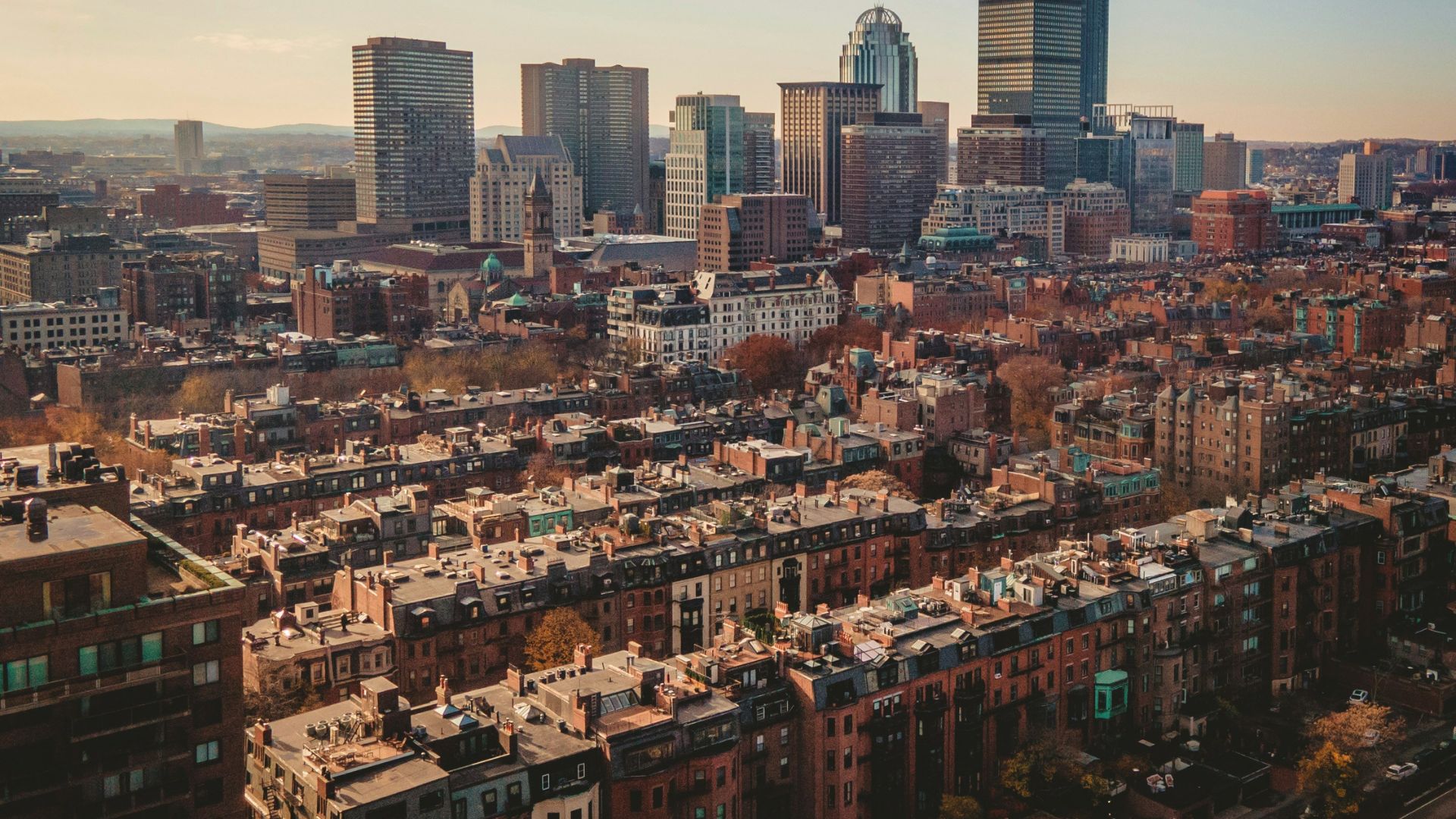
The reparations proposal outlines a comprehensive $15 billion plan aimed at addressing the impacts of slavery and systemic racism in Boston.
This plan is divided into three major components: $5 billion in direct cash payments to Black residents, another $5 billion dedicated to establishing new financial institutions to bolster economic empowerment, and the final $5 billion allocated towards mitigating racial disparities in education and crime prevention. The ambitious scale of this proposal significantly exceeds Boston’s annual budget of $4.28 billion for the fiscal year 2024.
The Controversial Legacy of Faneuil Hall
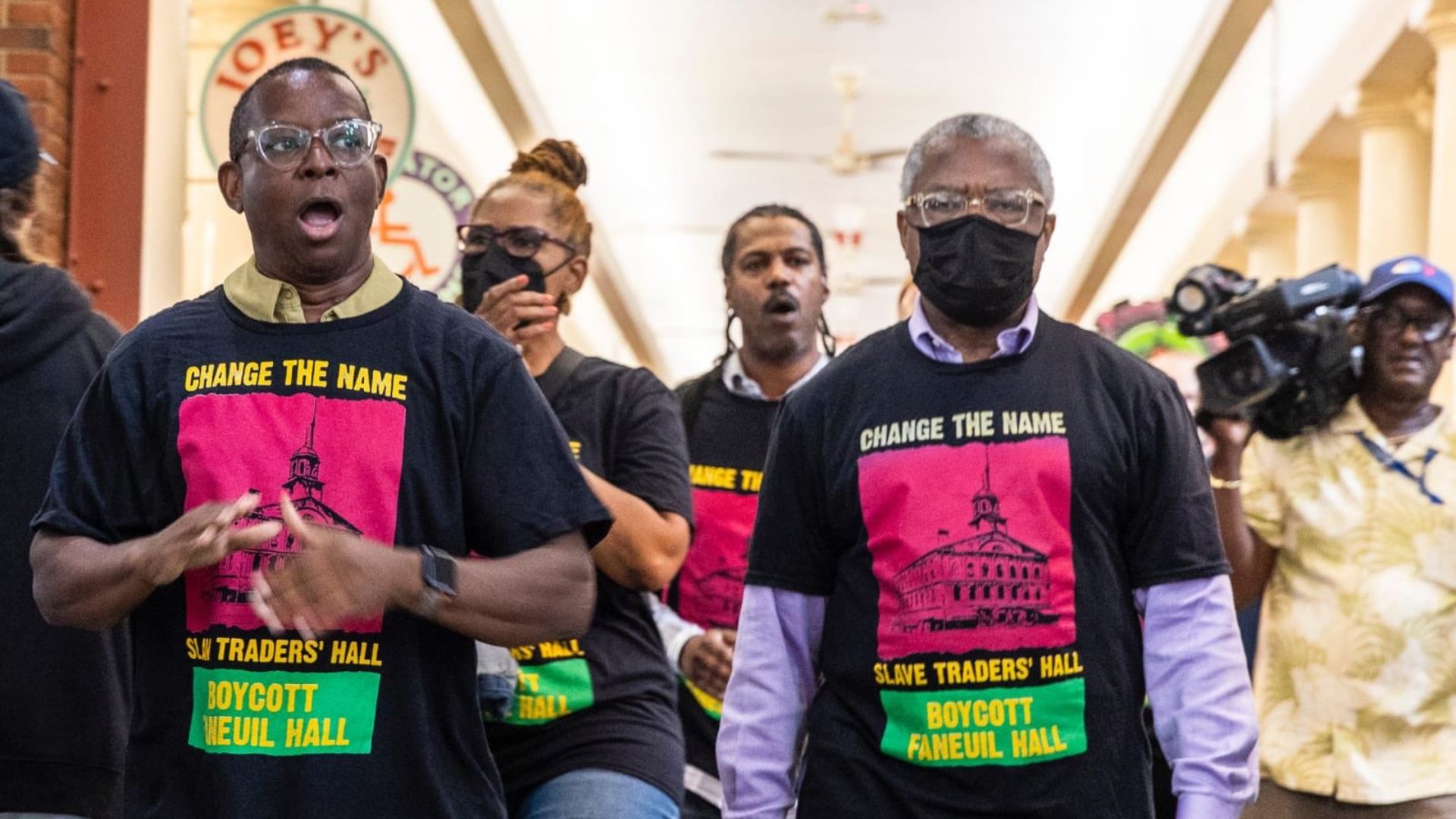
Reverend Peterson pointed out the need to reconsider the historical significance of Faneuil Hall, a landmark named after Peter Faneuil, a notorious slave trafficker.
By proposing a name change for the marketplace, Peterson is calling attention to the city’s historical connections to slavery and urging a reevaluation of how history is commemorated in public spaces.
An Interfaith Call for Action
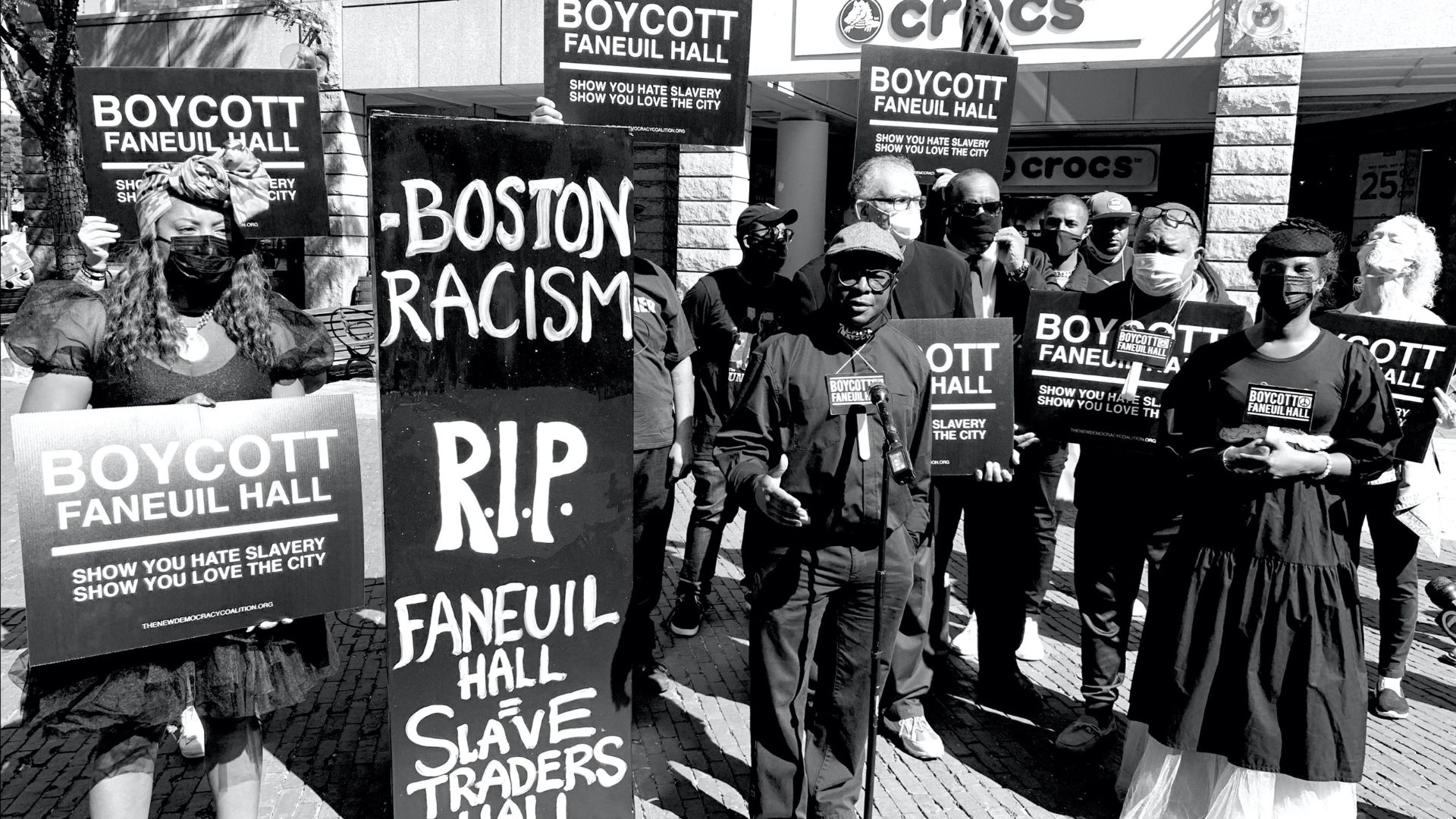
A diverse group of 16 clergymen, both Black and white, have united to send letters to targeted churches, proposing various methods for making reparations.
These suggestions include direct financial contributions, the creation of affordable housing, or the establishment of financial institutions aimed at supporting Boston’s Black community.
Historic Churches and Their Slavery Ties
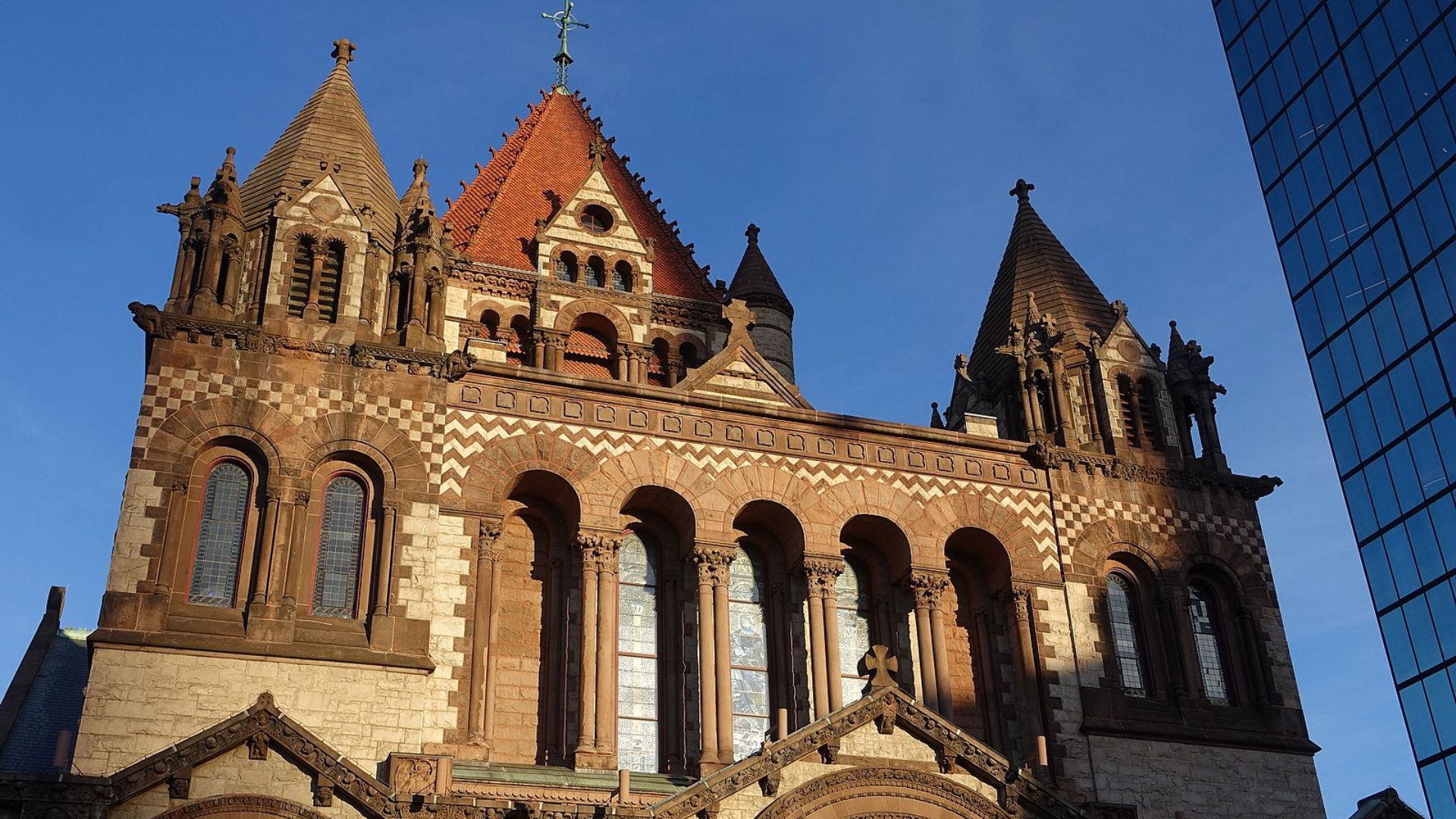
Attention is being drawn to several historic Boston churches, such as King’s Chapel, Arlington Street Church, Trinity Church, and Old South Church, for their connections to slavery.
These churches, dating back to the 1600s and 1700s, have histories intertwined with members and clergy who owned slaves.
Churches Confronting Their Past
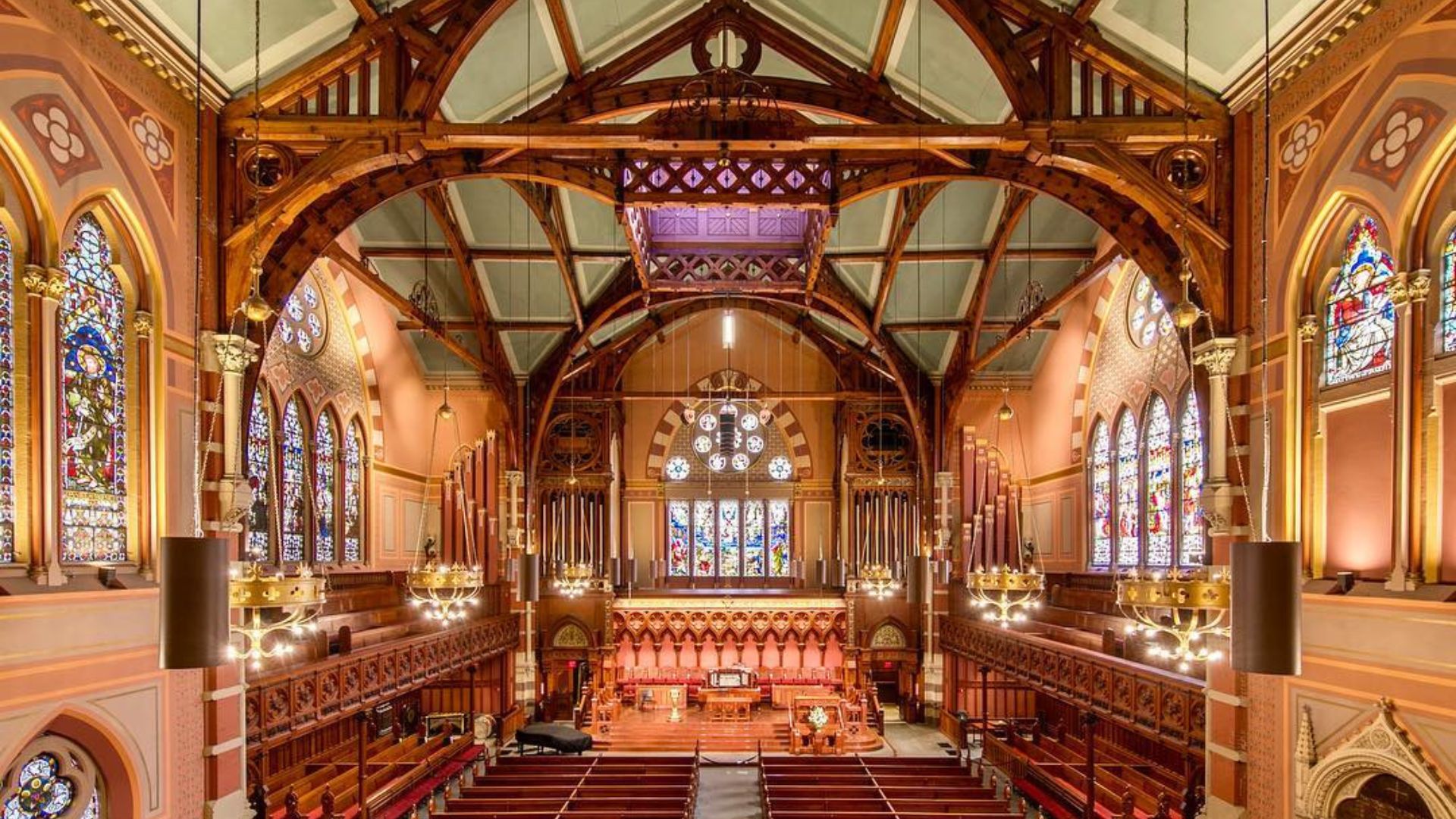
In response to the call for reparations, churches like King’s Chapel and Old South Church have initiated research into their historical ties to slavery.
Old South Church’s Reverend John Edgerton stated, “Old South is committed to learning the truth about our history and making repair — the God who loves justice demands nothing less.”
Archbishop Leo Edward’s Provocative Statement
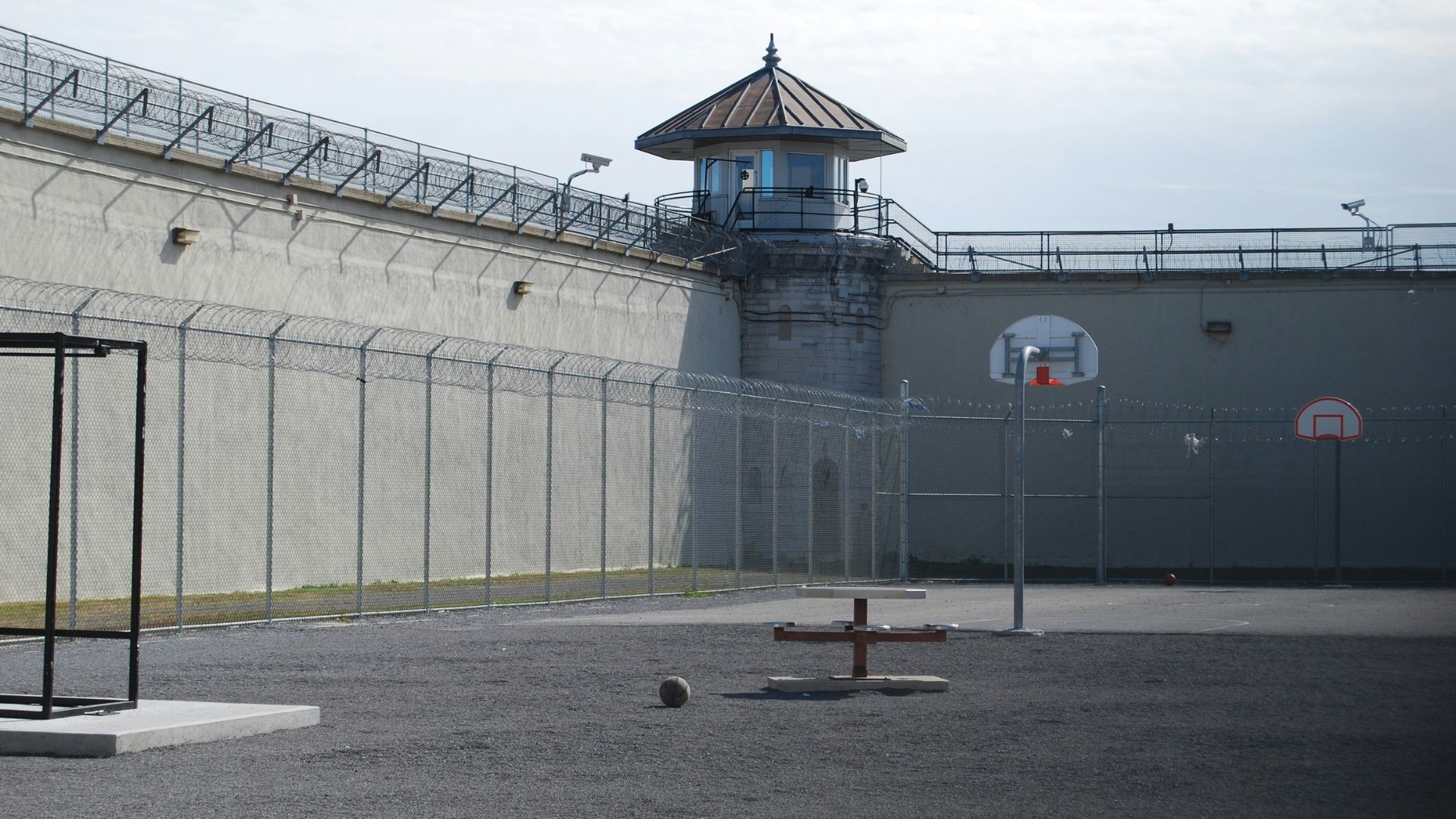
Archbishop Leo Edward made a striking comparison regarding the unfulfilled promise of “40 acres and a mule” to enslaved people.
He equated the modern prison system to the acres and prisoners to the mules.
Catholic Church’s Historical Role Challenged
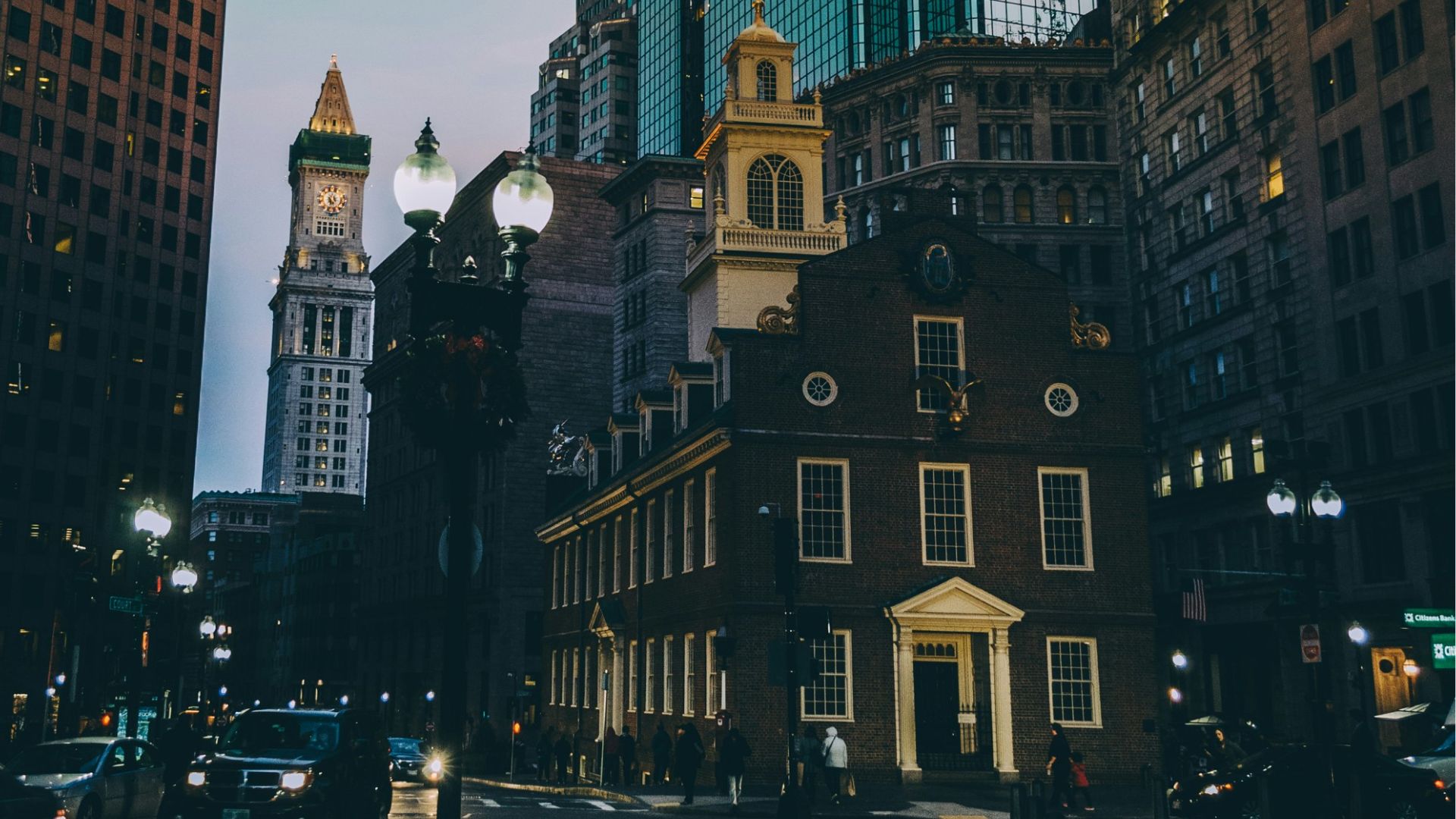
Reverend Peterson also criticized the Catholic Church for its historical support of systemic racism, despite being banned in Massachusetts until 1780.
He accused the Church of aiding in the perpetuation of anti-Black racism throughout the city’s history.
Cardinal Seán O’Malley Reflects on Slavery’s Legacy
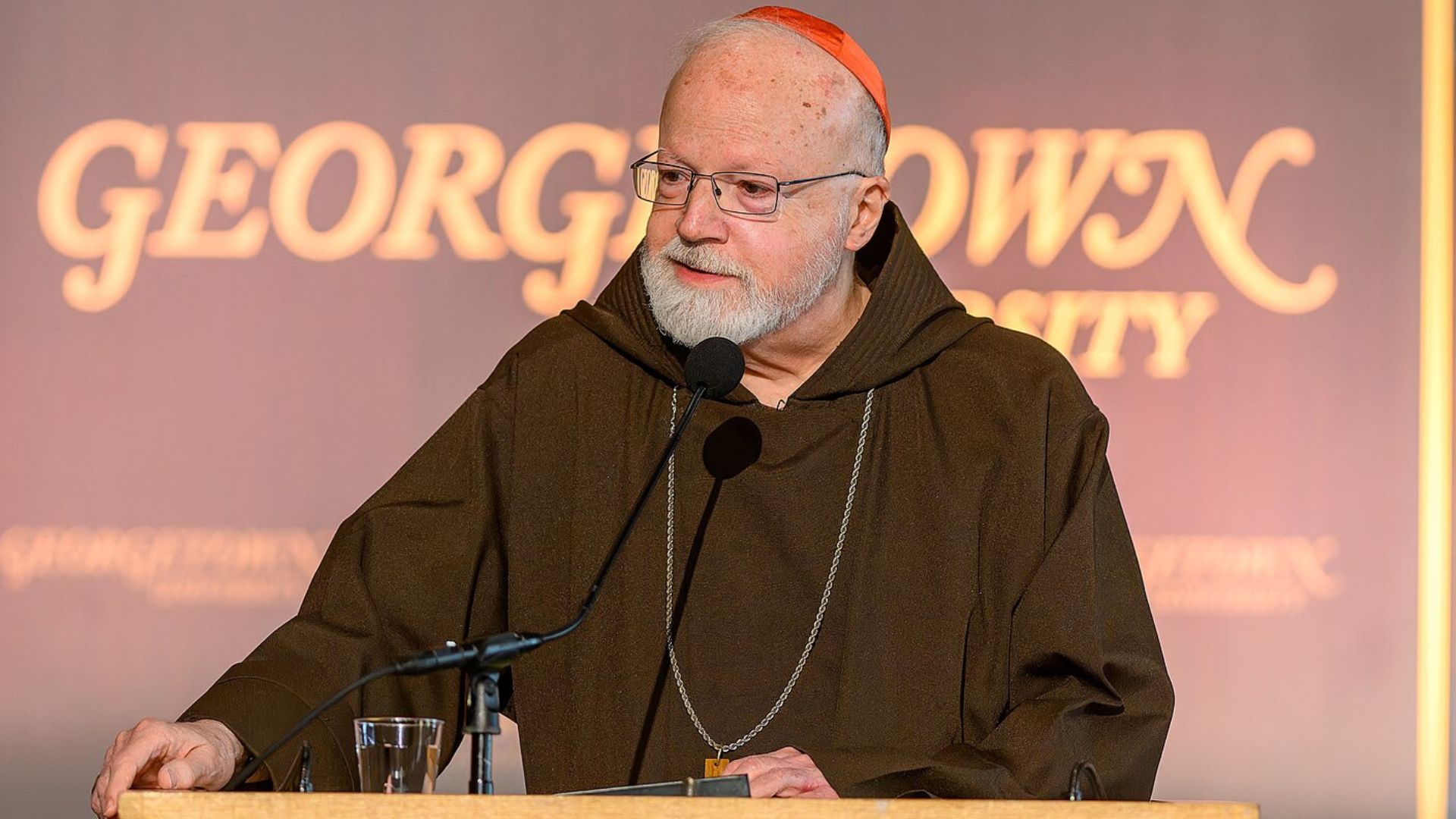
Cardinal Seán O’Malley of the Archdiocese of Boston acknowledged the lasting impact of slavery on American society.
According to the Daily Mail, in a 2020 blog post, he wrote, “Today, however, we must unite in our opposition to the consequences that this immoral practice has visited on our nation.”
Boston Establishes Reparations Task Force
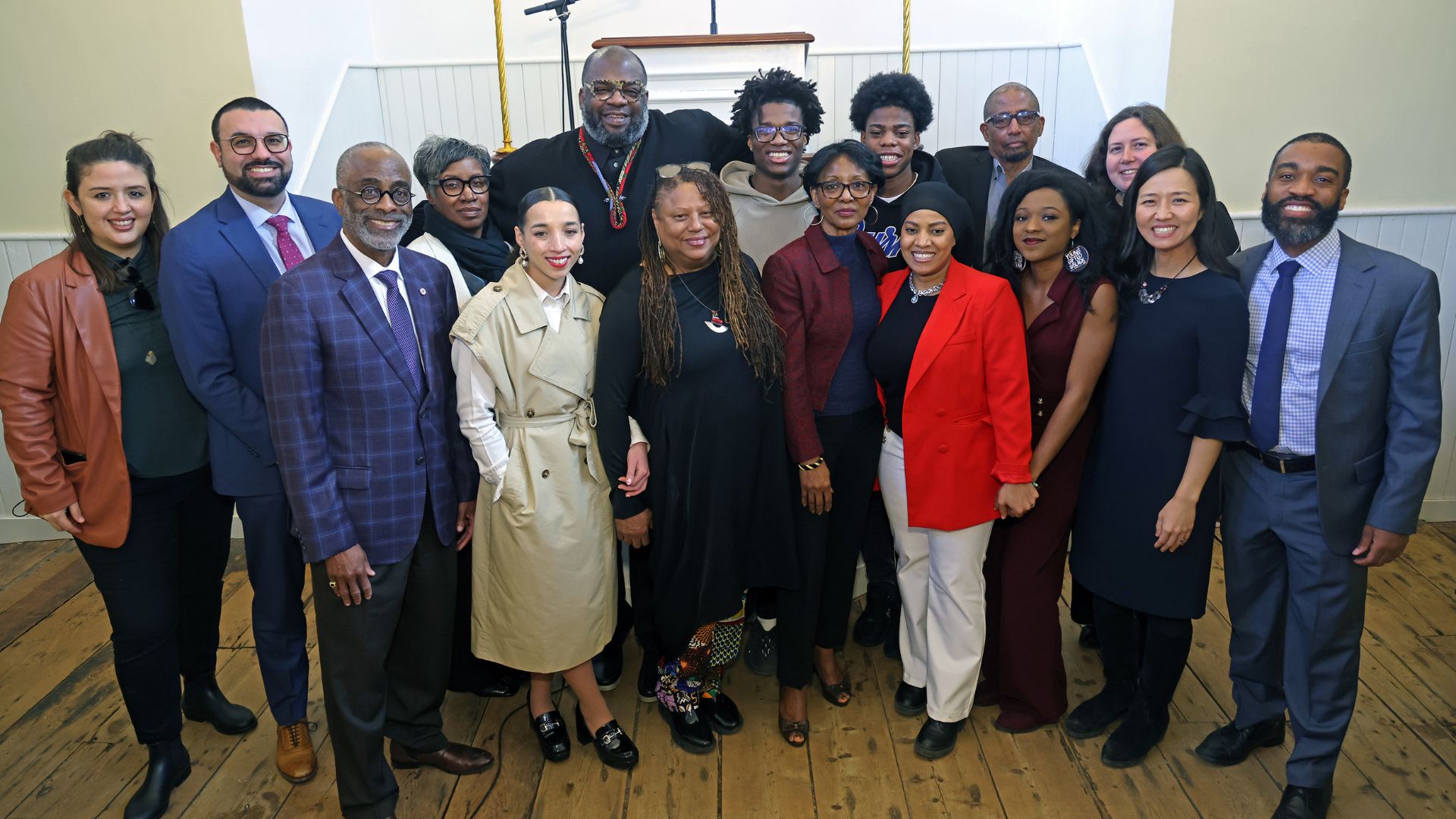
The City of Boston has taken a step towards addressing its historical complicity in slavery by creating the Task Force on Reparations in 2022.
This initiative aims to explore effective ways to provide reparations to the city’s Black residents.
A Call for Reconciliation and Reparations
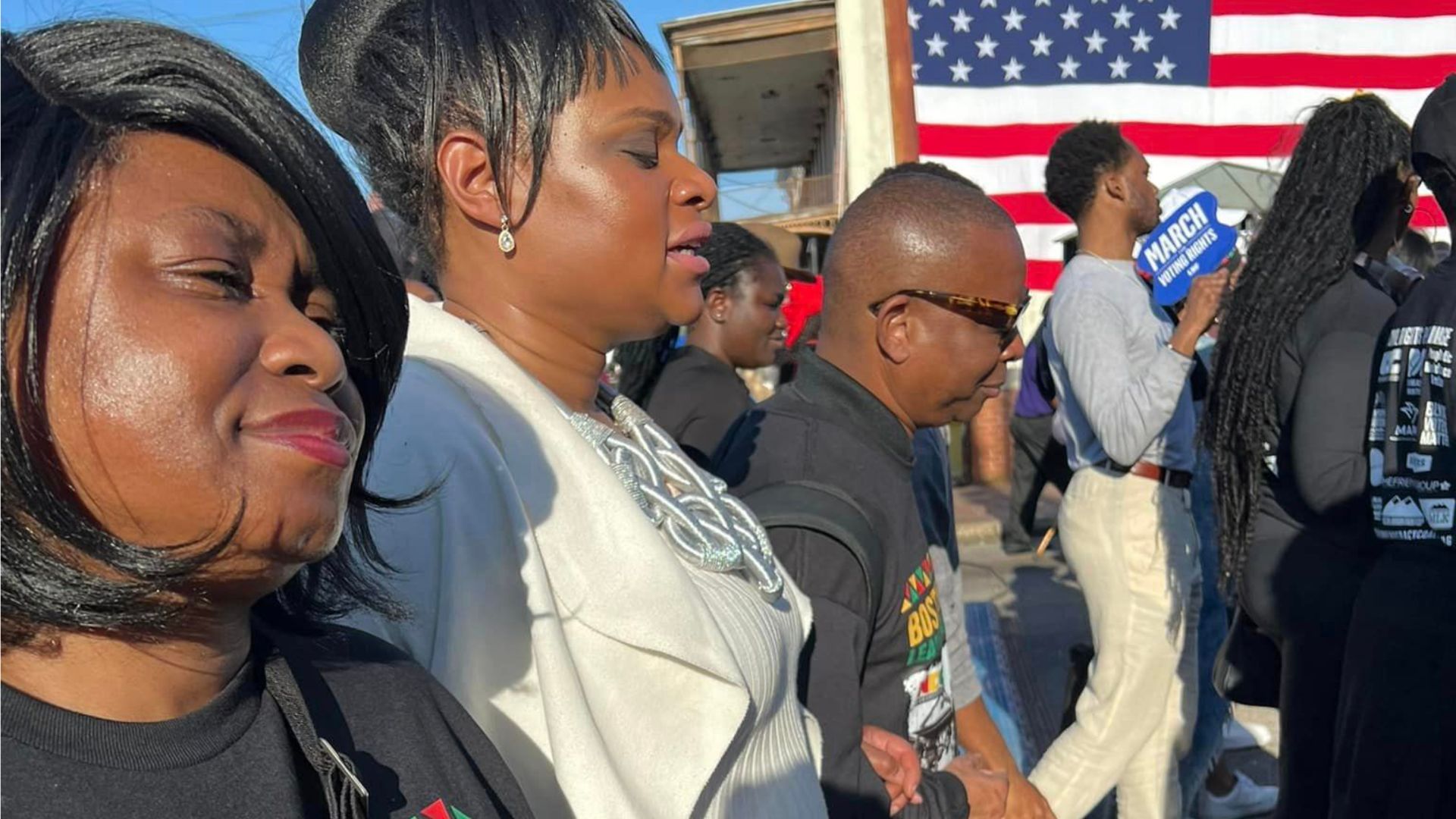
Danielle Williams, the director of Prophetic Resistance Boston, shared the story of her great-great-grandmother, who was enslaved in Africa and brought to North Carolina.
Williams said “Black people, the descendants of slavery have been washing the feet of our oppressors for well over 400 years. Now it’s time for you to wash our feet. The descendants of slavery, we want our reparations. We want it now.”
